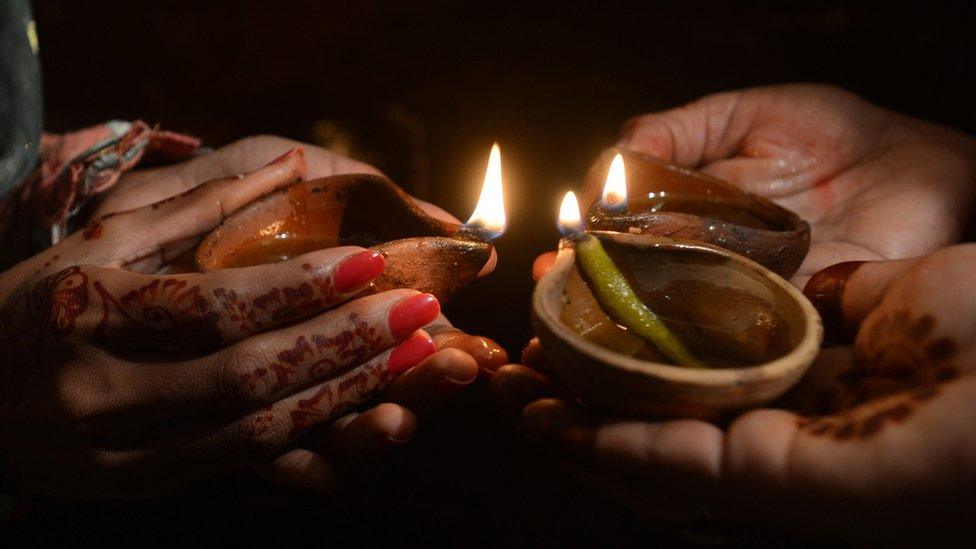Diwali fireworks choke Delhi, angering Indians
- Published
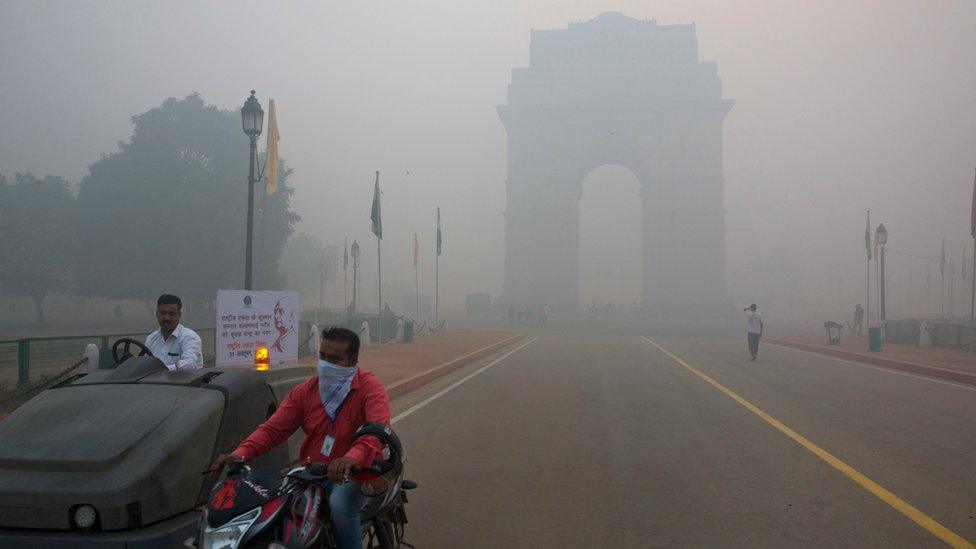
Authorities issued pollution warnings in Delhi ahead of Diwali
Angry residents of the Indian capital, Delhi, are sharing images of smog, one day after Diwali celebrations saw huge quantities of fireworks set off.
Levels of pollutants in the air were 30 times the World Health Organisation's recommended level in one neighbourhood.
Authorities had warned that Delhi faced a polluted Diwali because of factors like humidity and wind speed.
Diwali, the most important Hindu festival in north India, celebrates the victory of good over evil.

How bad is the smog?
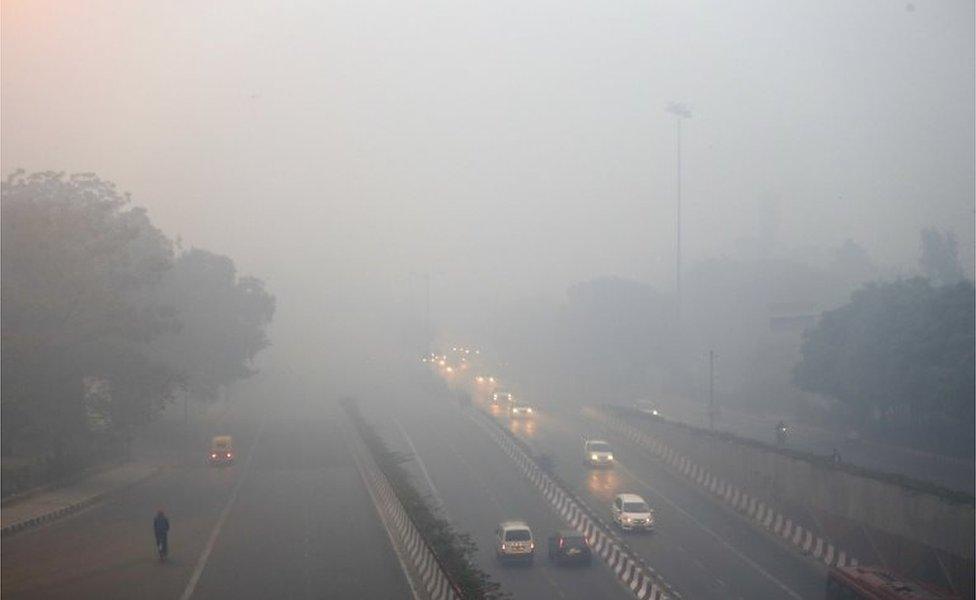
On Monday morning, visibility across the city was extremely low, thanks to a thick blanket of smog covering the city. Residents were advised to stay indoors.
Levels of tiny particulate matter (known as PM 2.5) that reaches deep into the lungs more than doubled within a few hours on Monday to 750 micrograms per cubic metre in the worst affected parts, India's Central Pollution Control Board said
That is 30 times a mean guideline set by the World Health Organization (WHO) of 25 micrograms per cubic metre on average over a 24-hour period.
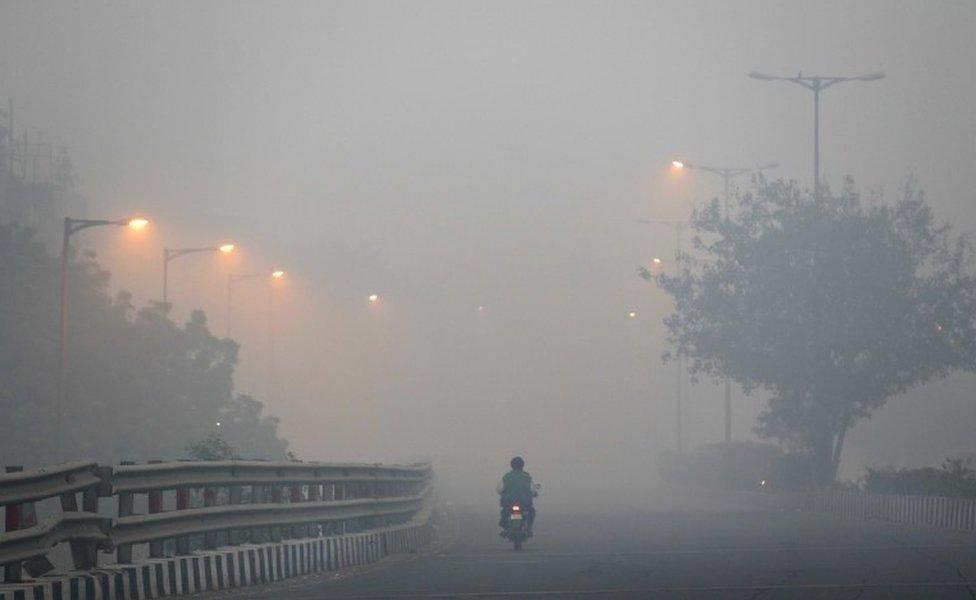
The US embassy in Delhi said its air pollution index late on Sunday had breached the "hazardous" upper limit level of 500, at which it stops measuring levels of particulate matter.
Gufran Beig, chief scientist at India's state-run System of Air Quality Weather Forecasting and Research (Safar), told AFP news agency: "Almost 60-70% of the smoke came from the firecrackers."
Safar said there was a "serious risk" of respiratory problems for people living in Delhi and advised against physical activities.

What about Delhi's pollution?
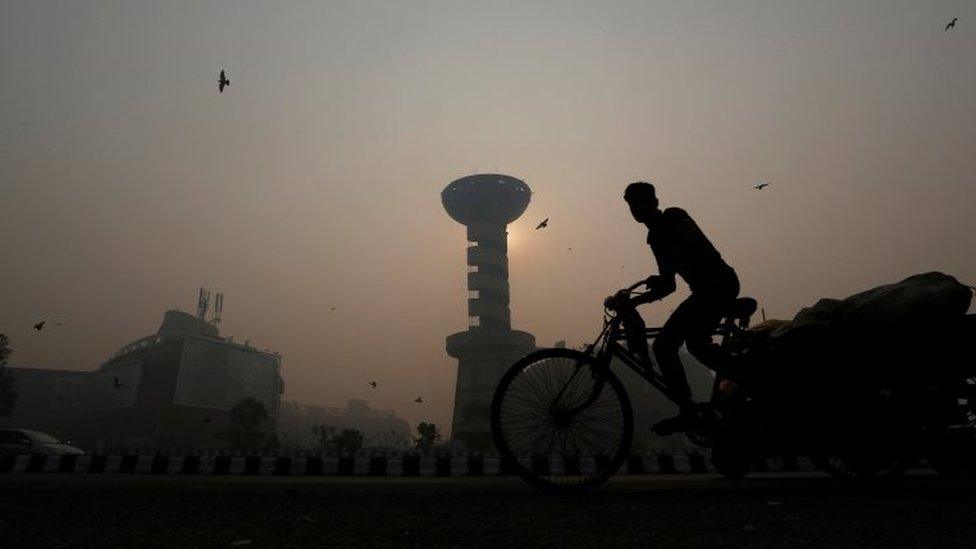
Delhi, a city of 16 million people, is the 11th most polluted city in the world, according to a report released by the WHO in May. On the days before the festival, the air quality there was already bad.
Authorities have tried to address the issue, including banning old trucks from entering the city and briefly trialling a scheme that limited private vehicle usage to alternate days. But experts say such measures have done little to reduce pollution.
Justin Rowlatt reports from Delhi: Fireworks make the pollution "worse"
During the winter months, Delhi's pollution is aggravated by many of the city's poor burning rubbish at night to stay warm. Agricultural waste is also set on fire across thousands of hectares around Delhi to clear cropland, which burns for days on end.
Meanwhile, a new study by the UN's children's fund, Unicef, said that nearly one in seven children in the world breathes outdoor air at least six times dirtier than international guidelines recommend. Most of them live in South Asian cities, many in northern India.
Air pollution is also a leading cause of premature death in India, with about 620,000 people dying every year from pollution-related diseases, says the WHO.

Why are fireworks so popular?
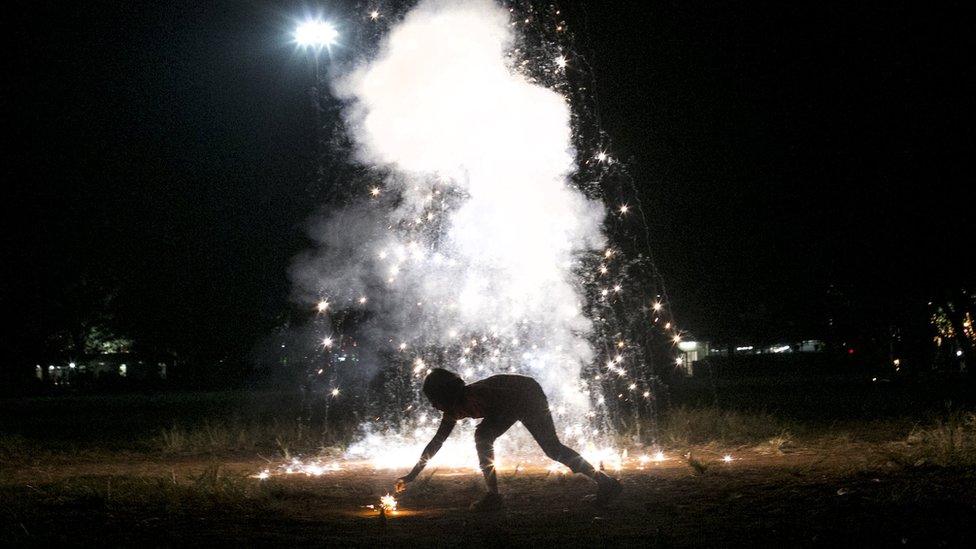
For some they are an opportunity to show off wealth. Business families spend hundreds of thousands of rupees to buy fireworks which are then used in the course of a single night.
Fireworks are also big business in India, with thousands of families employed in related factories.
Before Diwali there were several campaigns asking people to cut down on the use of fireworks. Similar initiatives in the past have got little attention.

How have people reacted to the smog?
Many have been very angry. The hashtag #smog was a trending topic on Twitter India. "Good show last night, Delhi. Now choke!" read one angry tweet, external from user Pratik Prasenjit.
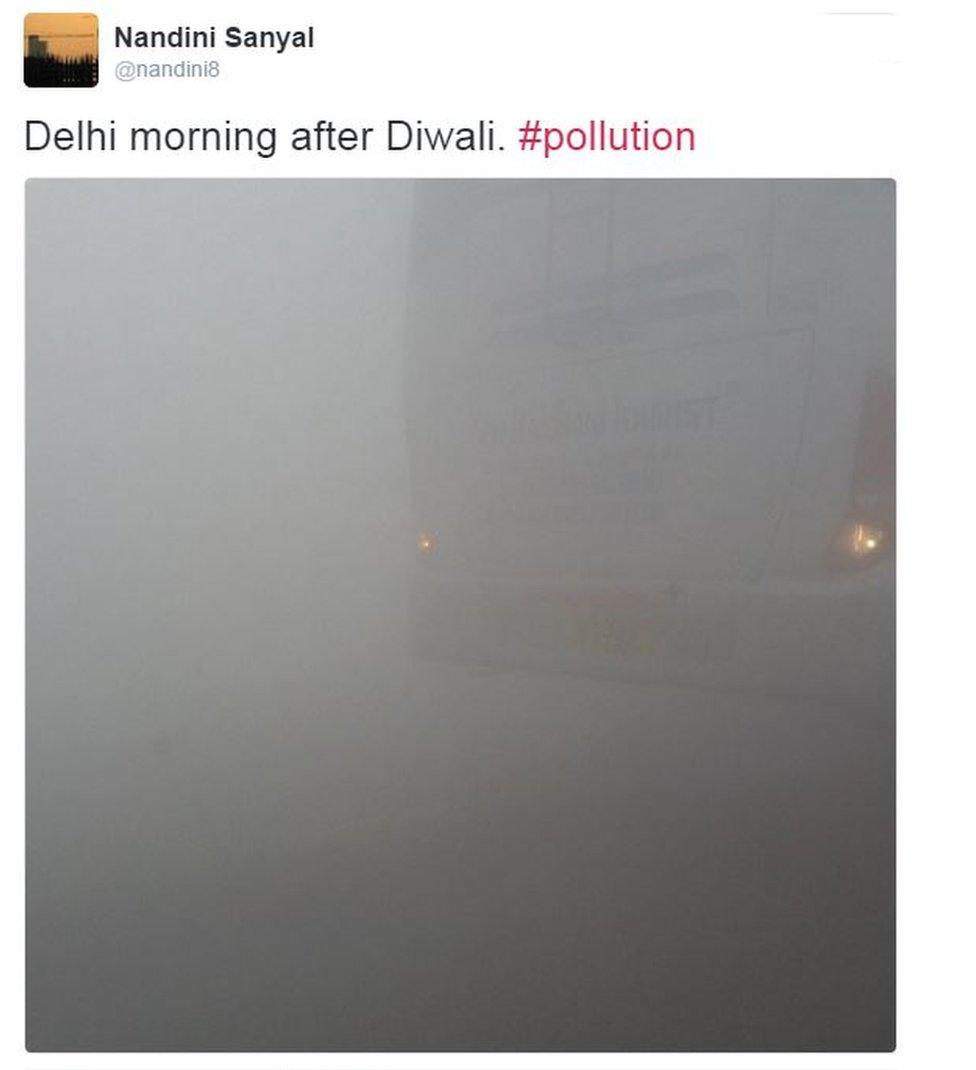
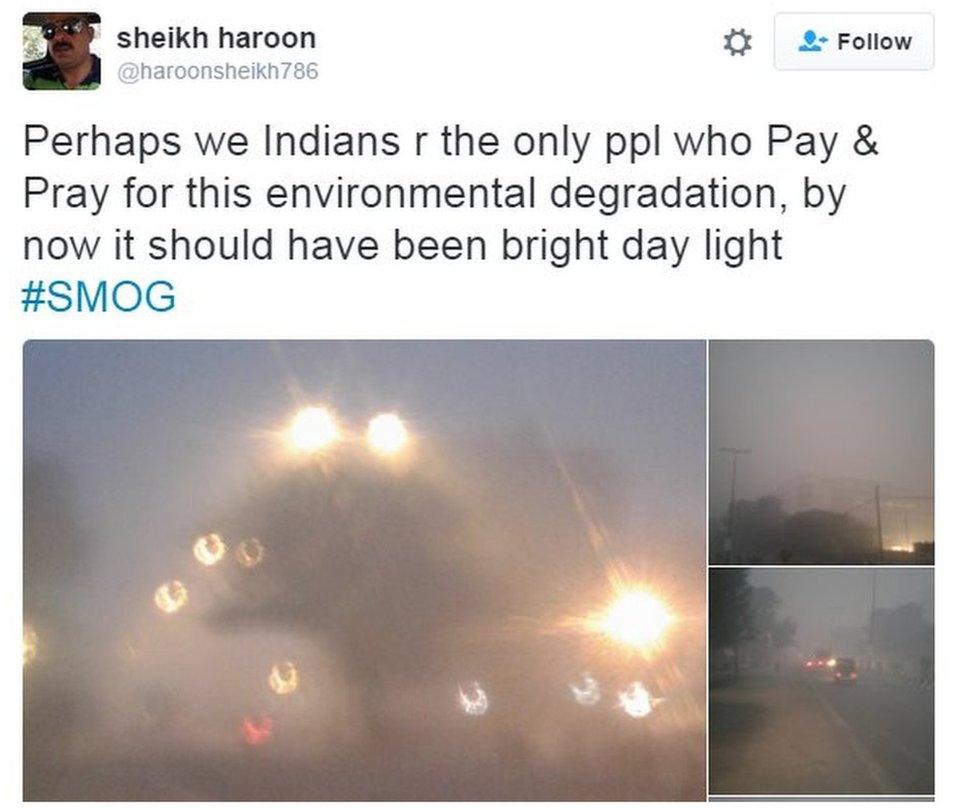
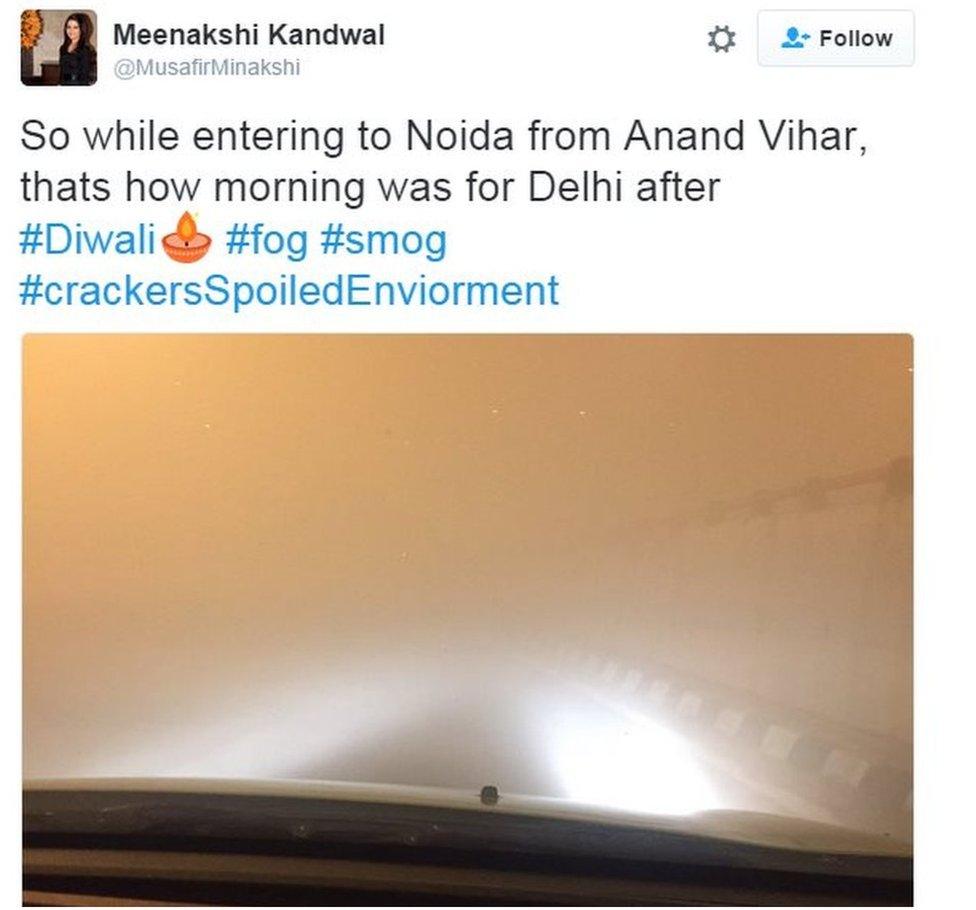
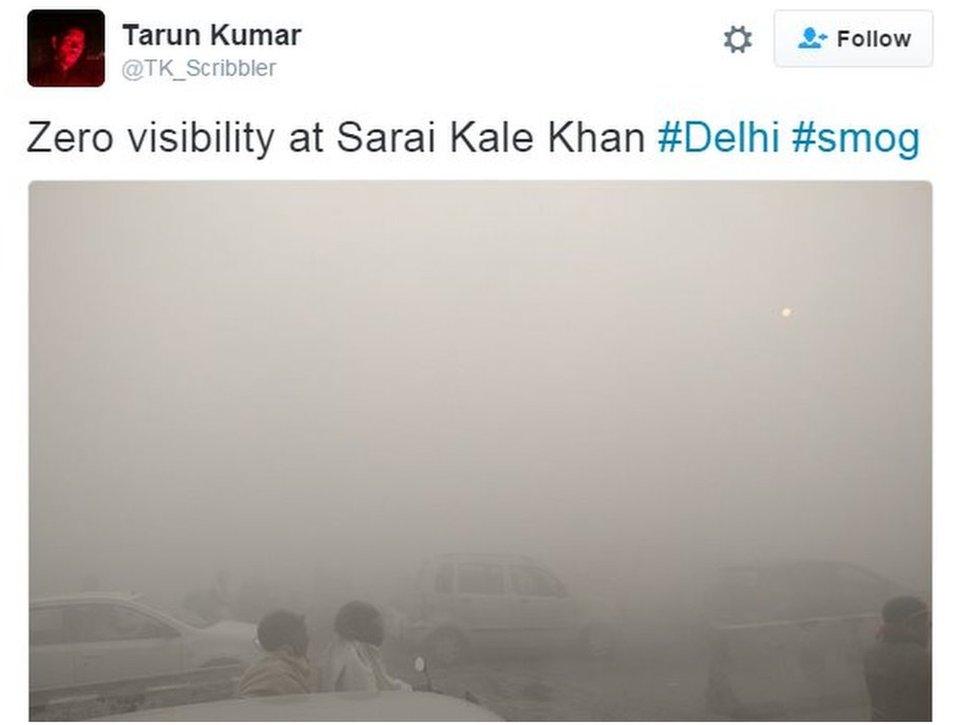
But many others have said the roots of Delhi's air pollution go beyond Diwali and its firecrackers.

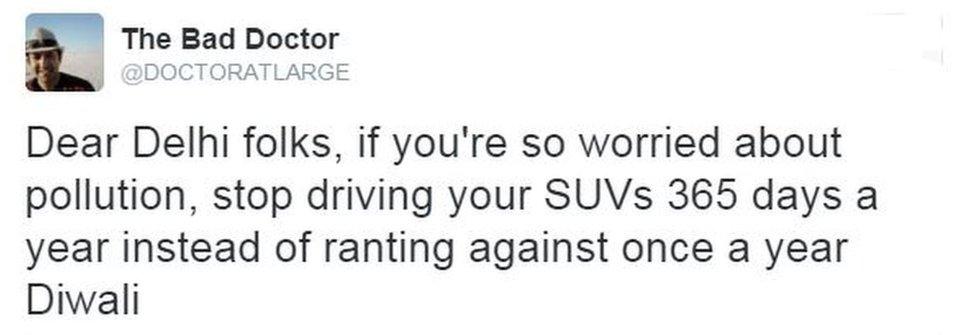

- Published31 October 2016
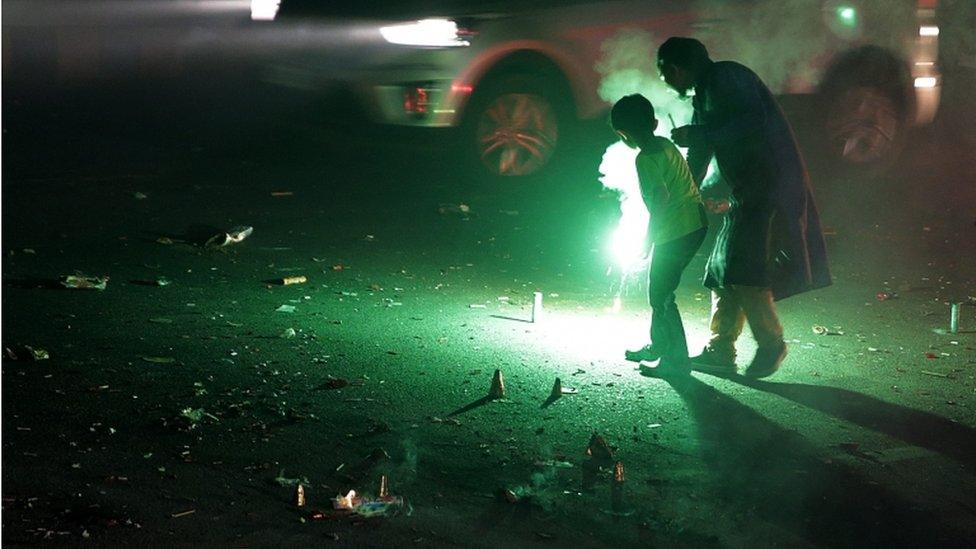
- Published30 October 2016
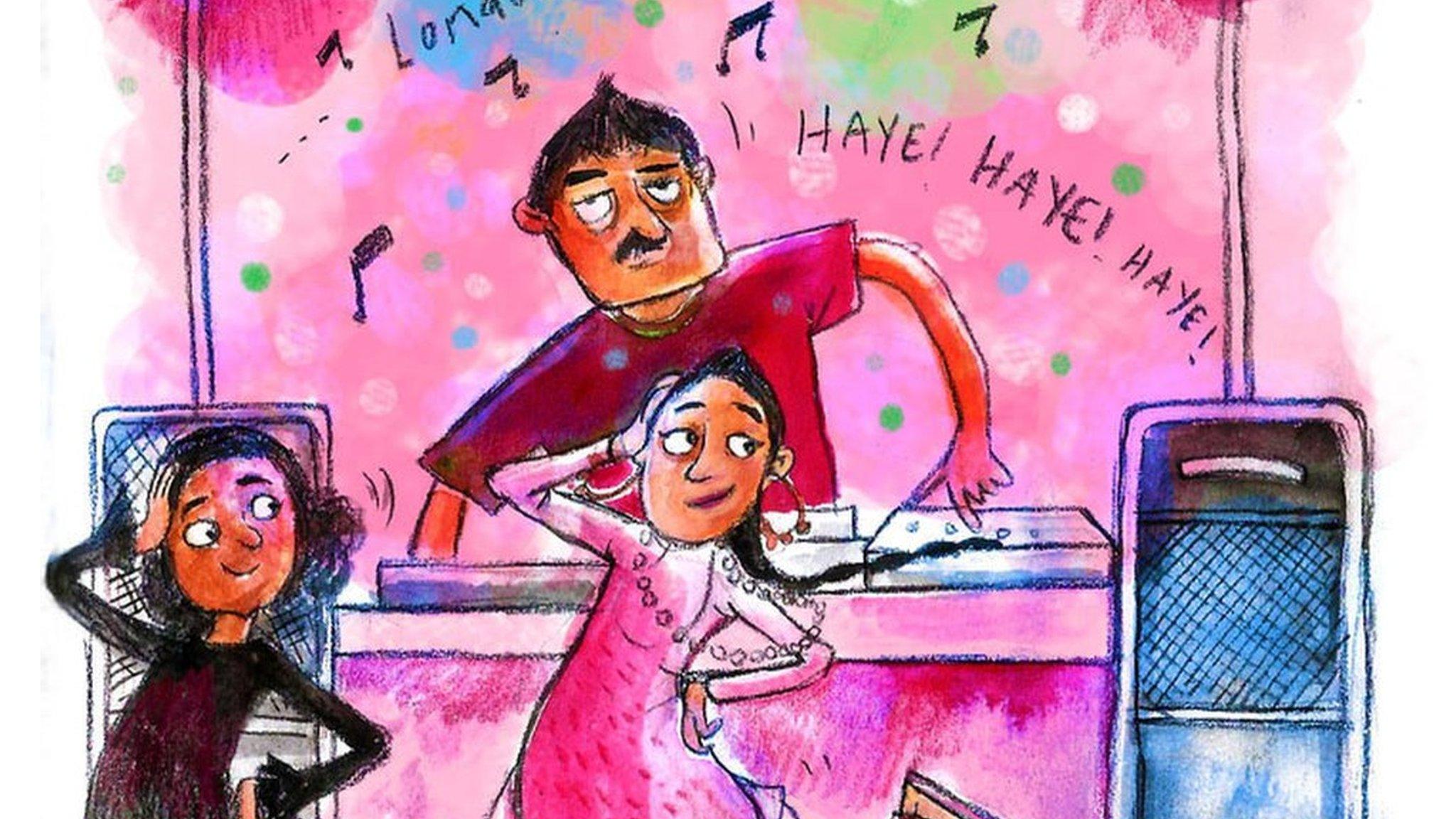
- Published11 November 2015
